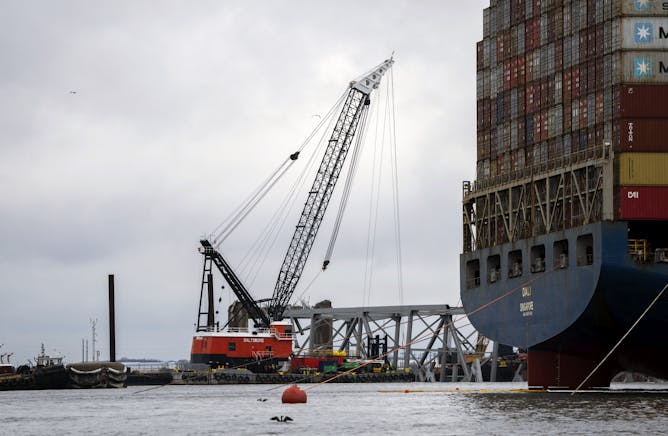|
Three years ago, Canada unveiled its ambitious Early Learning and Child Care plan that aimed to bring child-care costs down to $10 per day for Canadians by 2025.
But things are not quite going to plan: reports have found that space targets across the country are not being met, and many child-care organizations are buckling under the weight of financial pressure.
Today in The Conversation Canada, Elizabeth Dhuey from the University of Toronto writes about the challenges facing Canada’s Early Learning and Child Care plan.
She points to Québec as a cautionary tale for what can happen when too much focus is placed on merely increasing the availability of low-cost child-care spaces without paying enough attention to quality assurance. She argues that governments have a role to play in incentivizing the creation of high-quality child care.
Dhuey writes: “The focus cannot solely be on the comparatively easy path of increasing spaces as rapidly as possible. The goal is not just more child care all over Canada, but better child care for all.”
Also today:
All the best.
|

Child-care wait lists have ballooned across Ontario since the province signed on to the national $10-a-day program, as demand due to the lower fees appears to be far outstripping the creation of new spaces in many regions. Children play at a daycare in Coquitlam, B.C., on March 28, 2018.
THE CANADIAN PRESS/Darryl Dyck
Elizabeth Dhuey, University of Toronto
Governments need to co-operate to prioritize access to high-quality child care for low-income families, and sustain not-for-profit care centres with well-paid educators.
|

Pumpjacks draw oil out of the ground as a deer stands in a canola field near Olds, Alta., in July 2020. Standard agricultural systems in Canada and around the world achieve high yields, but at times at great ecological costs. Agroecology aims to address these issues.
THE CANADIAN PRESS/Jeff McIntosh
Evan Bowness, Trent University; Jessie MacInnis, University of Manitoba
Agroecology could be an effective way to address food insecurity and respond to the climate crisis. However, significant hurdles remain.
|

A prudent and economically viable energy transition to a low carbon economy is of the utmost importance for the future prosperity of Canada.
(Shutterstock)
Yrjo Koskinen, University of Calgary; J. Ari Pandes, University of Calgary; Nga Nguyen, Université du Québec à Montréal (UQAM)
New research has found that clean tech has much better prospects in the U.S., while oil and gas firms in Canada may outlast their American counterparts.
|

The Dali, right, sits amid the wreckage and collapse of the Francis Scott Key Bridge in Baltimore, Md., on April 1.
(Kaitlin Newman/The Baltimore Banner via AP)
Francesco Biondi, University of Windsor
Human error may have contributed to the tragic accident in Baltimore harbour on March 26. Designing systems that reduce the potential for human error may help prevent future incidents.
|

Pre-emptively announcing a state of emergency for prime eclipse-viewing areas in Canada’s Niagara Region is an example of prudent planning.
(Shutterstock)
Jack L. Rozdilsky, York University, Canada
A million people are anticipated to head to the Niagara Region to experience the total solar eclipse on April 8. Keeping large crowds of spectators safe may pose a challenge for the region.
|

Une salle de traitement par protonthérapie à Prague, en République tchèque. Le Canada est en retard sur d’autres pays pour ce qui est de ce traitement.
(AP Photo/Petr David Josek)
Derek Tsang, University of Toronto
La protonthérapie est une forme de radiation de précision qui peut réduire les effets secondaires du traitement du cancer. Elle est disponible dans le monde entier, mais pas au Canada.
|
Arts
|
-
Alex White, University of Cambridge
Angelou’s 1960s political journalism in Africa demonstrates her desire to link the struggle for civil rights in the US to global campaigns against racism.
|
|
Culture + Society
|
-
Myriam Denov, McGill University
The 1994 Rwanda genocide has left lasting scars. Children born of sexual violence and mothers have shown immense strength in overcoming their histories of violence.
|
|
Politics
|
-
Elizabeth Stites, Tufts University
Aid workers used to be considered off-limits in conflicts. The deaths of 7 aid workers in Gaza show that’s not the case anymore. Attacks on aid workers are on the rise.
|
|